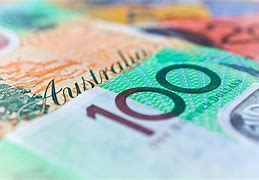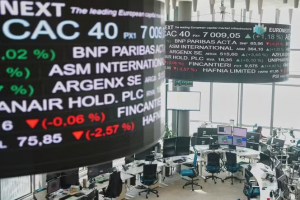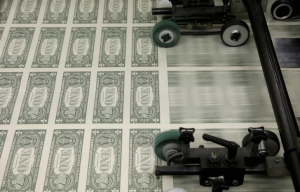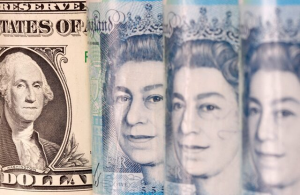The Australian Dollar (AUD) lost ground before Wednesday's Fed's Beige Book release, which will provide an overview of the current US economic situation based on interviews with key business contacts, economists, market experts, and other sources from the 12 Federal Reserve Districts. Additionally, New York Fed President John Williams is scheduled to speak later in the day.
The Australian Dollar appreciated during earlier Asian hours after the higher-than-expected Monthly Consumer Price Index was released on Wednesday. This strong data could prompt the Reserve Bank of Australia (RBA) to consider another rate hike. The minutes from the RBA's May policy meeting suggested that the central bank had contemplated a potential interest rate increase.
The risk aversion sentiment supports the US Dollar (USD), undermining the AUD/USD pair. This strength in the USD is reinforced by rising US Treasury yields. The US Dollar Index (DXY), which measures the USD against six major currencies, was trading higher around, 104.70, with 2-year and 10-year US Treasury yields at 4.96% and 4.54%, respectively, at the time of reporting.
The US Dollar (USD) rebounded on Tuesday after Neel Kashkari, President of the Federal Reserve Bank of Minneapolis, suggested that a rate hike might still be possible. Kashkari stated, “I don’t think anybody has totally taken rate increases off the table,” and expressed uncertainty about the disinflationary process, predicting only two rate cuts, per MSN.
According to the CME FedWatch Tool, the likelihood of the Federal Reserve implementing a 25 basis-point rate cut in September decreased to 41.7%, down from 44.9% the previous day.
Daily Digest Market Movers: Australian Dollar appreciates after higher consumer inflation International Monetary Fund (IMF) Deputy Managing Director Gita Gopinath, speaking from Beijing, announced an upgrade in China’s economic growth target to 5% from 4.6% for 2024, citing a robust first quarter. Gopinath also praised China’s initiatives to support its property market. Australia’s Monthly Consumer Price Index rose 3.6% year-over-year in April, surpassing the expected reading of 3.4% and the previous reading of 3.5%. US Housing Price Index (MoM) for March was underperforming, with March's number coming in at 0.1% against 1.2% for February, where 0.5% was expected. Australia's Retail Sales (MoM) rose by 0.1% in April, swinging from the previous 0.4% decline. This growth fell short of market expectations of 0.2%. On Tuesday, China’s Politburo, the country’s top leadership, announced that the government would enhance the coordination and integration of fiscal, monetary, investment, consumption, industrial, regional, and other policies with employment policies. Any economic changes in China could significantly impact the Australian market due to the close trade relationship between the two countries. At the 2024 BOJ-IMES Conference on Tuesday, Cleveland Federal Reserve President Loretta Mester emphasized the need for FOMC statements to provide a detailed description of the current economic assessment, its impact on the outlook, and the associated risks. Mester anticipates that the Fed will consider improving its communications as part of the next monetary policy framework review. Meanwhile, Federal Reserve (Fed) Governor Michelle Bowman stressed the importance of continuing to reduce the balance sheet size to achieve ample reserves as soon as possible, especially while the economy is strong. Bowman underlined the necessity of clearly communicating that any changes to the run-off rate do not indicate a shift in the Fed's monetary policy stance. Technical Analysis: Australian Dollar hovers around the key level of 0.6650 The Australian Dollar trades around 0.6650 on Wednesday. An analysis of the daily chart suggests a bullish bias for the AUD/USD pair, as it is positioned within a rising wedge. The 14-day Relative Strength Index (RSI) is slightly above the 50 level, further confirming this bullish bias.
The AUD/USD pair could potentially reach a four-month high of 0.6714, followed by the upper limit of the rising wedge around 0.6740.
On the downside, the 21-day Exponential Moving Average (EMA) at 0.6620 serves as key support, aligning with the lower boundary of the rising wedge. The next support level is at the psychological mark of 0.6600. A further decline could exert additional downward pressure on the AUD/USD pair, potentially driving it toward the throwback support region at 0.6470.













